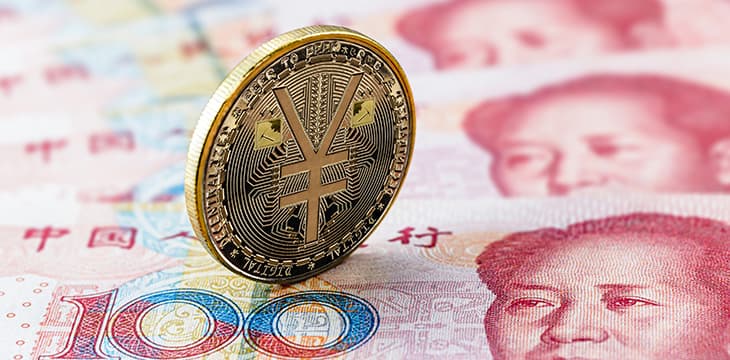|
Getting your Trinity Audio player ready...
|
Three financial industry self-regulatory associations have published a statement in which they take shots at digital currencies and warn financial institutions against processing related payments. The three believe that digital currencies are disrupting the Asian country’s economic order and urged traders to be cautious when investing in digital currencies, which “are not real currencies.”
The three organizations—the China Banking Association, the National Internet Finance Association, and the Clearing Association of China—are all self-regulatory associations. They fall under the supervision of the People’s Bank of China, with membership being voluntary. While they can’t formulate industry regulations, they generally ensure their members adhere to the laid-out regulations and impose sanctions and fines to those that don’t.
In their statement, the three noted, “Recently, cryptocurrency prices have skyrocketed and plummeted, and speculative trading of cryptocurrency has rebounded, seriously infringing on the safety of people’s property and disrupting the normal economic and financial order.”
They reminded the Chinese public that digital currencies “have no monetary properties such as legal compensation and are not real currencies.”
Significantly, they warned financial institutions against processing digital currency transactions. They stated, “Financial and payment member institutions shall not provide insurance services that relate to virtual currencies or directly and indirectly offer crypto-related services for their clients, including but not exclusive to: crypto-related trading, custody, lending and settlement; accepting virtual currencies as a payment tool; exchanging virtual currencies with the Renminbi.”
The organizations further want their members to strengthen the measures they have put in place to monitor virtual currency transaction funds. They must also strengthen risk information sharing, and “if clues of violations of laws and regulations are found, they must promptly adopt restrictions and suspensions in accordance with procedures.”
The warning went beyond the financial companies, and also addressed tech member companies. They were warned against offering advertising and promotion services for companies dealing in digital currencies.
The latest warning comes at a time when the People’s Bank of China is edging ever closer to launching the digital yuan. Some industry experts have cited this as a major reason China has continued to crack down on digital currencies.
Paul Haswell, a partner at Hong Kong law firm Pinsent Masons commented, “Part of it is they have their own digital renminbi, part is the lack of control in terms of cash outflows and part of it is trying to make sure people don’t get scammed.”
Indeed, China has amended its financial laws to ensure that the digital yuan will face no competition from other digital currencies. In October last year, the PBoC proposed a law that would punish anyone who makes or issues any digital currency that competes with the DC/EP.
Other experts expect other regulators to take similar measures to those taken by the Chinese self-regulating organizations. Henri Arslanian, the global head of crypto at Big Four audit firm PwC commented, “I would not be surprised to see other regulators and policymakers do the same as the Chinese restrictions over the coming weeks as they warn investors over the risks of speculative trading or crypto market volatility.”
See also: CoinGeek Live panel, Digital Currency & Global Compliance: Tools & Tips for Exchanges, Wallets & Other Service Providers

 03-01-2026
03-01-2026 




